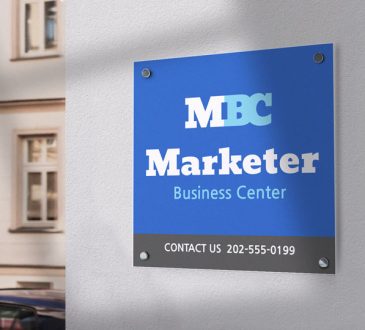
Case in point: managing business finances can feel like a chore. From tracking expenses to preparing payroll and reconciling accounts, there’s a lot to juggle. That’s why accounting software is such a popular choice for businesses. It promises to simplify the process, save time, and give you back the mental bandwidth to focus on what matters: running your business.
But here’s the million-dollar question: is accounting software really making businesses smarter, or is it just automating tasks and giving the illusion of control? On the surface, it might seem like a no-brainer. Who wouldn’t want a tool that does the heavy lifting for you? However, when you dig a little deeper, you start to realise there’s more to the story.
Automation is fantastic, but there’s a fine line between convenience and over-reliance.
Why Businesses Swear By Accounting Software
There’s no denying that accounting software has changed the game for businesses. It’s no longer just big corporations that can afford streamlined financial management. Today, small and medium-sized enterprises (SMEs) can tap into the same efficiencies that were once out of reach.
So, what’s so great about it?
- Saves Time and Effort
Instead of manually inputting data or calculating taxes, accounting software does it for you. It automates repetitive tasks like invoicing, payroll, and expense tracking. Imagine the hours you could save each month just by automating these processes!
- Reduces Errors
Let’s face it, we’re all human, and humans make mistakes, especially when numbers are involved. Accounting software minimises the risk of errors by performing calculations automatically and flagging discrepancies.
- Provides Real-Time Insights
With modern cloud-based accounting solutions, you can access your financial data anytime, anywhere. This is particularly useful for business owners who are always on the go and need a clear picture of their finances at a moment’s notice.
- Streamlines Compliance
Tax season is a headache for most business owners, but accounting software makes it much easier. Many platforms come with built-in features to calculate taxes and generate reports that align with local regulations.
In short, accounting software has made financial management faster, more accurate, and significantly less stressful. But as great as these benefits sound, they don’t come without their own set of challenges.
The Downsides of Over-Reliance
While accounting software is undoubtedly useful, relying on it too much can backfire. Here’s why:
- Losing the Bigger Picture
It’s easy to let the software handle everything and assume all is well. But are you really understanding the numbers? For example, you might see that profits are up, but do you know why? Which products or services are driving growth? What’s your cash flow looking like? If you’re not actively engaging with your financial data, you’re missing out on critical insights that could shape your strategy.
- Data In, Data Out
Accounting software is only as good as the data you feed into it. If you input incorrect information like miscategorising expenses or forgetting to record a transaction, the software can’t fix it for you. Garbage in, garbage out.
- Over-Automation
Automation is a double-edged sword. While it saves time, it can also make you complacent. When you let the software handle everything, you may stop paying attention to the details. This can lead to small mistakes snowballing into bigger problems over time.
- Not One-Size-Fits-All
Most accounting software is designed to cater to a wide range of businesses. But if your company has unique needs, the software might not align perfectly with your processes. For example, you might have to force your data into generic categories, which can result in less accurate reporting.
The Importance of Staying Involved
The good news is that you don’t have to choose between automation and control. The key is to use accounting software as a tool, not a replacement for your own involvement.
Here’s how to stay on top of your finances without letting the software do all the thinking for you:
- Understand the Basics
You don’t need a degree in finance, but knowing concepts like cash flow, gross profit margin, and break-even analysis will go a long way. When you understand the basics, you can interpret the data your software provides and make smarter decisions.
- Review Your Reports Regularly
Set aside time each week or month to go through your financial reports. Don’t just glance at the numbers, ask questions. Why are expenses higher this month? Which revenue streams are performing best? The more you engage with your data, the better you’ll understand your business.
- Perform Manual Checks
Even if your software is doing most of the work, it’s a good idea to perform occasional manual checks. Look over your bank reconciliations, expense categories, and tax calculations to ensure everything adds up.
- Customise Where You Can
If your accounting software allows for customisation, take advantage of it. Tailor the categories, reports, and features to match your specific business needs. This will make your data more accurate and relevant.
Is It Really Making Your Business Smarter?
So, back to the original question: is accounting software making your business smarter, or just more automated? The answer depends on how you use it.
If you’re treating it as a plug-and-play solution and leaving it on autopilot, you’re only scratching the surface of what it can do. But if you’re using it to gain deeper insights into your finances and actively engage with the data, it can be a powerful tool for growth.
The smartest businesses don’t just rely on technology—they combine it with human expertise and critical thinking. That’s what sets successful companies apart.
The Bottom Line
Accounting software has revolutionised the way businesses handle their finances. From automating tedious tasks to providing valuable insights at your fingertips, it’s clear why so many companies are jumping on board. But as impressive as these tools are, they can’t do everything. At its core, your business still needs the human touch—critical thinking, intuition, and decision-making that no software can fully replicate.
The trick is knowing how to strike the right balance. Accounting software works best when paired with human oversight. It takes care of the repetitive, time-consuming tasks, allowing you and your team to focus on strategy, growth, and building stronger connections within your business. In a way, it’s less about replacing humans and more about empowering them to work smarter.




